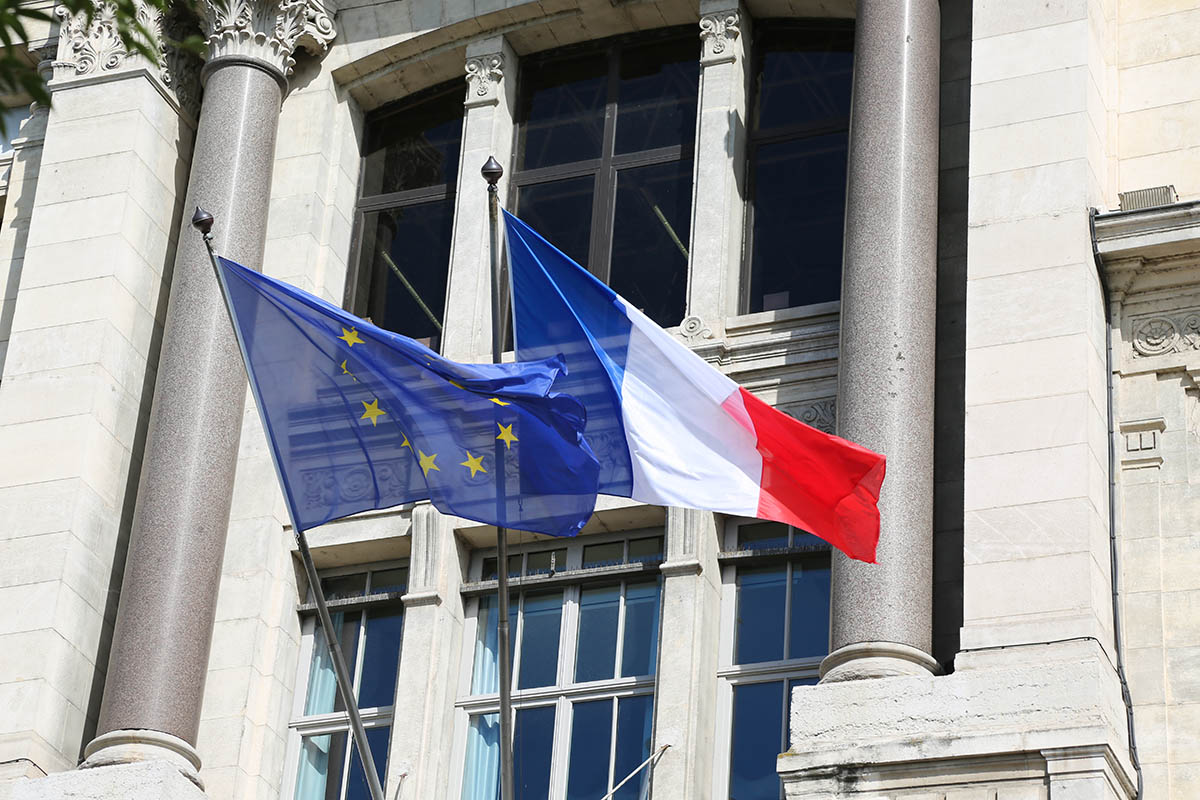
The immediate effect of a tiered incentive shows the power of state-level initiatives to support the value chain and reinforce EPR laws. | Photoeu / Shutterstock
Recycling technology company Carbios will restart construction on its enzymatic PET recycling plant in Longlaville, a move attributed in part to French governmental incentives. The so-called biorecycling plant is expected to start production in the second half of 2027.
The decision to restart construction was supported by changes in the regulatory environment in France, the company said in a press release, as well as “major progress” toward public funding and interest from private equity, with investment subject to obtaining offtake contracts for a “significant” share of the plant’s capacity.
“Pre-sales of products from the future Longlaville plant are progressing, supported by a favorable regulatory environment,” Carbios said, citing a new French decree encouraging recycled content and discouraging less recyclable materials. “This decree represents a powerful new lever to accelerate customer adoption of Carbios’ technology as it enables them to benefit from a €1,000/ton bonus for including biorecycled plastics derived from hard-to-recycle waste into sensitive-contact packaging (e.g. food packaging),” the statement said.
Amid intensifying calls for action in Europe, France will implement a tiered system of financial incentives for using recycled plastics in January. Along with minimum recycled content mandates, the criteria include locating operations throughout the full recycling chain within an approximate 930-mile radius of the center of France, within the European Union or from third countries with environmental standards equivalent to the EU’s. Bonuses range from €450 to €1,000 per metric ton ($528–$1,172/mt, or 24–53 cents/lb).
Longlaville, in northeastern France near Belgium and Luxembourg, is about 225 miles from Paris.
In December 2024, Carbios postponed construction by six to nine months: “Without calling the plant construction project into question, the decision to postpone the project enables Carbios to slow down the pace of cash burn on the project, and to pursue commercial discussions without liquidity pressure.”
Several months later, major cosmetics brands L’Oreal and L’Occitane en Provence signed the first multi-year offtake agreements with Carbios. Then in July, Carbios announced a long-term contract with Indorama Ventures to create recycled PET filaments, which then would be used to manufacture Michelin tires. L’Occitane this week launched its first bottle made of 100% recycled PET.
The project is receiving €42.5 million ($50 million) in public funding, including a €30 million ($35 million) grant from the French Environment and Energy Management Agency. The remainder is from the Grand Est Regional Council, which is roughly equivalent to a North American state or province.
Although the European Commission approved the regional aid, Carbios has not yet received the funds, the press release said. First the Official Journal of the EU must publish approval of the chemical recycling aid scheme, which Carbios said is expected soon.
The company also has secured “a significant portion of its raw material supply and signed polymerization contracts, strengthening the industrial foundations of the project.”
France also has experience with eco-modulated fees, with lackluster results.
As extended producer responsibility programs for packaging start to take hold in the US, many are looking to Europe for ideas. Several stakeholders in the decades-old French system shared some lessons they’ve learned, including that eco-modulated fees have not achieved their desired effect.
Contrast with US
The fortunes of another chemical recycling company provide a contrast to the Carbios developments. Tennessee-based Eastman planned a PET depolymerization plant in France but those plans have been on hold for the past year, amid difficulties in securing offtake contracts.
Eastman has yet to make a final investment decision on the project, which was announced in 2022 with an expected startup in 2025. Executives have not discussed the project since a late November 2024 investor meeting.
Eastman did not respond to a request for comment on whether the French incentives could revive support for the plant. The company in August announced it would delay its second US recycling plant, planned for Longview, Texas, after losing a federal grant that had originally spurred the company to make a final investment decision and proceed.
“Although US project economics have improved, they still face policy uncertainty both domestically and in Europe,” said Alexandra Tennant, Houston-based director of global recycled plastics at Chemical Market Analytics. “Nevertheless, Europe will create ‘sticky’ demand for recycled content, even amid competition from cheaper virgin materials.”